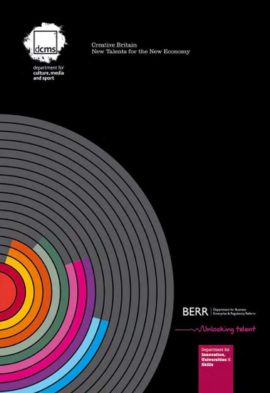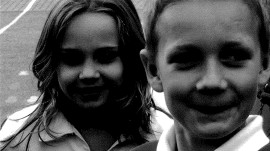
Evaluation of find your talent – overview report
Evaluation to assess impact of the programme in ten pathfinder areas between 2008 and 2011.
Evaluation to assess impact of the programme in ten pathfinder areas between 2008 and 2011.
In a series of essays, Born Creative brings together the experiences of creative practices in early years education. Intended to show the importance of cultures, environments and networks in the enrichment of early years learning.
Findings from a major longitudinal study undertaken between 2008 and 2010 of the early career patterns of more than 3,500 graduates in practice-based art, design, crafts and media subjects, qualifying in 2002, 2003 and 2004 from 26 UK higher education institutions.
Action plan that focuses on generic skills that artists need to underpin their careers in a complex environment.
Mapping report commissioned by the Liverpool Arts Regeneration Consortium from Impacts ’08.
Draft learning framework for artists who work with looked after children, covering principles and values, workforce knowledge and skills, quality indicators, training and networking, quality improvement of work and accreditation.
Summary of DCMS and CYPCT national arts programmes for children.
New Labour consultation paper which challenged cultural professionals and educationalists to provide a new and coherent direction for creative learning, and for encouraging creativity through culture.
Important at-the-time DCMS document explaining its developing thinking about the creative industries environment and policy.
Summary of the independent evaluation by the University of Leicester of the DCMS/ DCSF funded national and regional museums partnership programme of education work in 2006-07.
Asserts that current provision of entrepreneurship education for creative graduates is not adequately preparing graduates to run their own businesses.
Paper contributing to the debate about what quality and values in children and young
people’s cultural production actually means. Written with Creative Partnerships Newcastle as a research partner.
The Conservative Party’s “Arts Task Force”’ submission to The Shadow Secretary of State for Culture, Media and Sport. Produced in 2007, the Task Force was Chaired by Sir John Tusa.
Impact of sustained partnerships between schools and creative practitioners as a result of Creative Partnership initiatives.
Published by Arts Council England in 2006, outlines the positive contribution that the arts can make to children and young people. Aimed to bring greater understanding of how the arts could help to achieve the outcomes of the New Labour government agendas of Every Child Matters and Youth Matters.
Study by the Burns-Owen Partnership of the impact of Creative Partnerships on the creative economy.
Considers how to promote the development of entrepreneurial skills amongst graduates, and how to avoid skills shortages by getting the skills supply to match more closely with the needs of creative businesses.
Report on coaching and mentoring in the cultural sector.
Describes three different prototypes that created new interpretation and visitor interaction.
Loic Tallon describes a piece of independent research into audioguides and their use and potential in galleries and museums.
Overview of engage’s “en-quire” programme, still in process at the time of publication.
Interesting and informative discussion of the Teacher Artist Partnership in the context of Continuing Professional Development and pedagogy.
Iain Biggs describes the resistance that has arisen as art-based research carves a place for itself in higher education in the form of PhDs and professional doctorates in fine art. Part of the engage 18 research range of articles.
Explores impact of artists working in educational settings through arts-based interventions organised in what were education action zones of Bristol and Corby, pre Creative Partnerships.
This report examines how young people on Detention and Training Orders could access, participate and progress in the arts. Researched by Nottingham Trent University, and published by Arts Council England in 2005, this is part of the body of research exploring the role of arts within New Labour Social Inclusion policy.










